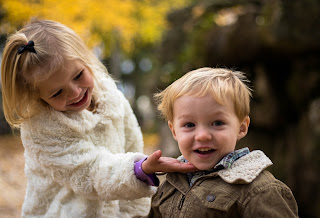In today's fast-paced and interconnected world, where interactions are often reduced to screens and social media, the value of courtesy seems to have diminished. However, fostering a culture of courtesy and respect from an early age is vital for the healthy development of children.
To create a more compassionate society, it is imperative that every early childhood institution prioritize teaching courtesy lessons. By instilling these values, we can lay a strong foundation for a kinder future. In this article, we will explore the numerous benefits of teaching courtesy and why it should be an integral part of every child's early education.
Nurturing Social and Emotional Development
Early childhood is a critical period for social and emotional development. By teaching courtesy, children learn how to interact with empathy, kindness, and consideration for others. They develop essential skills such as active listening, sharing, and taking turns, which are crucial for building successful relationships throughout their lives. These lessons encourage emotional intelligence, self-regulation, and the ability to resolve conflicts peacefully, leading to stronger social bonds and improved overall well-being.
Enhancing Communication Skills
Courtesy lessons provide a framework for effective communication. Children learn to express themselves clearly, using polite language and respectful gestures. They understand the importance of maintaining eye contact, using appropriate tones, and giving others their full attention. By practicing these skills regularly, children develop confidence in their ability to express their thoughts and feelings, leading to improved communication in various contexts, including academic, personal, and professional settings.
Fostering Inclusivity and Empathy
In a diverse and multicultural society, teaching courtesy helps children develop an inclusive mindset and fosters empathy for others. By emphasizing the importance of treating everyone with respect, regardless of their background, children learn to appreciate diversity and embrace differences.
They understand the significance of listening to different perspectives, valuing others' opinions, and celebrating the uniqueness of each individual. Such lessons lay the foundation for a harmonious and inclusive society, reducing discrimination and fostering understanding among future generations.
Building Stronger Communities
Courtesy is not just an individual trait; it also contributes to building stronger communities. When children learn to practice kindness, compassion, and respect, they become active contributors to their communities.
They understand the importance of helping others, volunteering, and being responsible citizens. By internalizing these values, they grow into individuals who are more likely to engage in acts of kindness, contribute positively to their communities, and create a ripple effect of positive change.
Preparing for Success in a Globalized World
In a rapidly globalizing world, where cultures intersect and diverse perspectives abound, individuals with strong courtesy skills have a distinct advantage. They are better equipped to navigate multicultural environments, adapt to new situations, and collaborate effectively with people from various backgrounds.
Employers increasingly value employees who possess strong interpersonal skills, making courtesy education an invaluable asset for future career success.
Keep in mind
Teaching courtesy in early childhood institutions is not merely an optional component; it is a crucial investment in our future. By instilling the values of courtesy, kindness, and respect in children from an early age, we empower them to become responsible, empathetic, and compassionate individuals. These qualities will shape their interactions, relationships, and contributions to society.
Let us strive to create a culture where courtesy is valued, celebrated, and integrated into every aspect of early childhood education, ensuring a brighter and more harmonious future for generations to come.







No comments:
Post a Comment